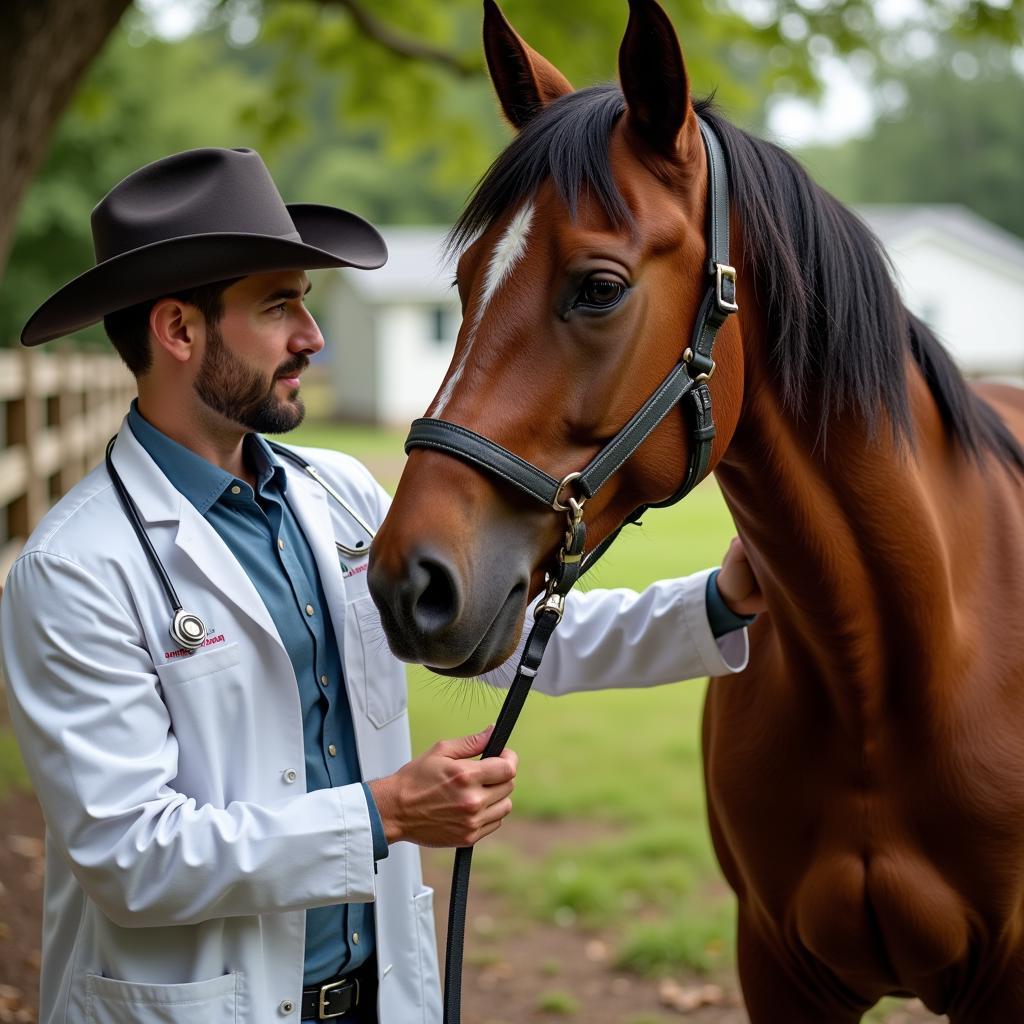The connection between a horse and a “Curtis” isn’t a common phrase in the equestrian world. While we usually talk about the bond between a horse and their rider, trainer, or even another animal companion, the term “Curtis” suggests a specific individual’s name. This opens up a world of fascinating possibilities!
Is Curtis a renowned horse whisperer? Perhaps he’s a young boy forming an unbreakable friendship with his equine partner? Or maybe Curtis represents all of us – the individuals seeking a deeper connection with these majestic creatures.
Whatever the story behind “Horse And Curtis”, it highlights the unique and personal relationships we forge with animals.
Exploring the Possibilities: Who is Curtis?
To understand the relationship, let’s delve into the potential identities of “Curtis”:
- Curtis, the Experienced Horseman: This Curtis could be a seasoned trainer, a farrier, or a veterinarian with years of experience understanding equine behavior. He might have a unique approach to training or care, emphasizing trust and mutual respect.
 Curtis examining a horse's leg
Curtis examining a horse's leg
-
Curtis, the Young Enthusiast: Imagine a young boy named Curtis who dreams of owning a horse. This scenario embodies the pure joy and unconditional love children often experience with animals. His journey with horses might involve learning responsibility, patience, and the power of companionship.
-
Curtis, the Symbol of Human-Animal Connection: Perhaps “Curtis” isn’t a specific person, but a metaphor for any individual seeking a profound connection with horses. This interpretation emphasizes the universal desire for understanding and partnership with animals.
Building a Strong Bond: Essential Elements
Regardless of who Curtis is, the key to a thriving horse-human relationship lies in:
- Trust: Horses are prey animals, meaning they’re instinctively wary. Building trust requires patience, consistency, and clear communication.
- Respect: Recognizing and valuing the horse’s nature is paramount. Avoid forcing interactions and prioritize the horse’s comfort and safety.
- Empathy: Learning to interpret horse body language is crucial. Understanding their subtle cues of stress, fear, or relaxation allows for a deeper connection.
FAQ
- What are some ways to build trust with a horse? Spending time with the horse, offering treats, and using positive reinforcement techniques can help establish trust.
- How can I tell if a horse is uncomfortable? Pinned ears, a swishing tail, and tense muscles are all signs of a horse feeling stressed or threatened.
- Is it important to have experience with horses before trying to bond with one? While experience is helpful, even beginners can build strong bonds by approaching the relationship with respect and a willingness to learn.
Justus Horses USA: Your Partner in Equine Care
At Justus Horses USA, we celebrate the unique bond between horses and their human companions. We strive to provide resources, information, and support to help you cultivate a safe, fulfilling, and lasting partnership with these incredible animals.
Need guidance on horse care, training, or simply want to share your own “horse and Curtis” story? Contact our team at Phone Number: 0772127271, Email: [email protected] Or visit us at: QGM2+WX2, Vị Trung, Vị Thuỷ, Hậu Giang, Việt Nam. We’re here to support you 24/7.